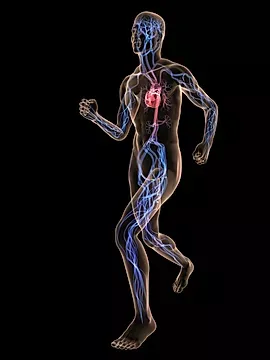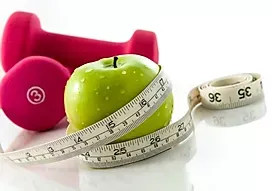Diagnosis

Exercise and Physical Fitness
Regular physical activity is one of the most important things you can do for your health. It can help:
- Control your weight
- Lower your risk of heart disease
- Lower your risk for type 2 diabetes and metabolic syndrome
- Lower your risk of some cancers
- Strengthen your bones and muscles
- Improve your mental health and mood
- Improve your ability to do daily activities and prevent falls, if you’re an older adult
- Increase your chances of living longer
Fitting regular exercise into your daily schedule may seem difficult at first, but even ten minutes at a time is fine. The key is to find the right exercise for you. It should be fun and should match your abilities. Center for Disease Control and Prevention

Smoking – Tips on How to Quit
There are many ways to quit smoking. There are also resources to help you. Family members, friends, and coworkers may be supportive. But to be successful, you must really want to quit.
Most people who have quit smoking were unsuccessful at least once in the past. Try not to view past attempts to quit as failures. See them as learning experiences. It is hard to stop smoking or using smokeless tobacco. But anyone can do it.
Know the symptoms to expect when you stop. Common symptoms include:
- An intense craving for nicotine
- Anxiety, tension, restlessness, frustration, or impatience
- Difficulty concentrating
- Drowsiness or trouble sleeping
- Headaches
- Increased appetite and weight gain
- Irritability or depression
How bad your symptoms are depends on how long you smoked. How many Cigarettes you smoked each day also plays a role.

Feel Ready to Quit?
First, set a quit date. Quit completely on that day. Before your quit date, you may begin reducing your Cigarette use. But remember, there is no safe level of cigarette smoking. List the reasons why you want to quit. Include both short-and long term benefits. Identify the times you are most likely to smoke.
For example,
- Do you tend to smoke when feeling stressed or down?
- When out at night with friends?
- While drinking coffee or alcohol?
- When bored?
- While driving?
- Right after a meal?
- During a work break?
- While watching TV or playing cards?
- When you are with other smokers?
Let your friends, family, and co-workers know of your plan to stop smoking. Tell them your quit date. It can be helpful if they know what you are going through, especially when you are grumpy. Get rid of all your Cigarettes just before the quit date. Clean out anything that smells like smoke, such as clothes and furniture.

CHANGE YOUR LIFESTYLE
Make other changes in your lifestyle. Change your daily schedule and habits. Eat at different times, or eat several small meals instead of three large ones. Sit in a different chair or even a different room.
Satisfy your oral habits in other ways.
- Eat celery or another low-calorie snack. Chew sugarless gum. Suck on a cinnamon stick.
- Go to public places and restaurants where smoking is prohibited or restricted.
- Eat regular meals, and don’t eat too much candy or sweet things.
- Get more exercise. Take walks or ride a bike. Exercise helps relieve the urge to smoke.
SET SOME GOALS
Set short-term quitting goals and reward yourself when you meet them. Every day, put the money you normally spend on Cigarettes in a jar. Later, buy something you like.Try not to think about all the days ahead you will need to avoid smoking. Take it one day at a time.Even one puff or one cigarette will make your desire for more cigarettes even stronger. However, it is normal to make mistakes. So even if you have one Cigarette, you don’t need to take the next one. OTHER TIPS: Enroll in a stop smoking support program. Hospitals, health departments, community centers, and work sites often offer programs. Learn about self-hypnosis or other techniques.
Ask your health care provider about medications that can help you quit nicotine and tobacco and keep you from starting again.
Find out about nicotine patches, gum, and sprays. The American Cancer Society’s web site, www.cancer.org, is an excellent resource for smokers who are trying to quit. The Great American Smokeout can also help some smokers kick the habit. Above all, don’t get discouraged if you aren’t able to quit smoking the first time. Nicotine addiction is a hard habitto break. Try something different next time. Develop new strategies, and try again. Many people take several attempts to finally kick the habit.
